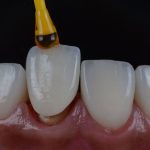Understanding Wisdom Teeth Surgery: How Long Does Anesthesia Last?

Wisdom teeth surgery is a common procedure that many individuals undergo in their lifetime. This procedure involves the removal of the third molars, located at the back of the mouth, which can cause pain, infection, or damage to surrounding teeth. While the procedure itself is relatively straightforward, many patients are curious about the length of time that anesthesia will last during the surgery. Understanding how long anesthesia lasts can help patients prepare for the procedure and alleviate any concerns they may have. Anesthesia is a critical component of wisdom teeth surgery, as it helps to numb the affected area and prevent pain during the procedure. There are different types of anesthesia that can be used, including local anesthesia, conscious sedation, and general anesthesia. The length of time that anesthesia lasts during wisdom teeth surgery will depend on the type of anesthesia used, the individual’s medical history, and the complexity of the procedure. It is important for patients to discuss their options with their dentist or oral surgeon before the surgery to ensure that they are comfortable with the anesthesia plan and understand how long it will last.
Wisdom teeth surgery is a common dental procedure that involves the removal of the third molars, which usually appear between the ages of 17 and 25. The surgery is performed under local anesthesia or general anesthesia, depending on the patient’s preference and the complexity of the procedure. Local anesthesia numbs the area around the teeth, while general anesthesia puts the patient to sleep during the procedure. Once the anesthesia wears off, the patient may experience some discomfort, swelling, and bleeding, which can be managed with pain medication and ice packs. It is important to follow the aftercare instructions provided by the dentist to ensure proper healing and minimize the risk of complications.
Anesthesia is a crucial component of any surgical procedure, including wisdom teeth extraction. It serves multiple purposes, including providing pain relief, minimizing anxiety and discomfort, and inducing a temporary loss of consciousness. The use of anesthesia enables the surgeon to perform the procedure safely and efficiently while ensuring the patient’s comfort and well-being. There are different types of anesthesia available, including local, general, and sedation anesthesia. The type used depends on the complexity of the procedure, the patient’s medical history and preferences, and the surgeon’s expertise. The duration of anesthesia varies, depending on the type used and the patient’s response to it. Understanding the importance of anesthesia in wisdom teeth surgery can help patients make informed decisions and feel more confident about their treatment.
What is Anesthesia?

Anesthesia is a medical practice that involves the administration of drugs to induce a temporary loss of sensation or consciousness in a patient. It is commonly used in surgical procedures to minimize pain and discomfort during the operation, making it easier for the surgeon to perform the necessary procedures. Anesthesia can be administered through different methods, including injection, inhalation, and topical application, depending on the type of surgery and the patient’s needs. The drugs used in anesthesia work by blocking the transmission of nerve impulses, which leads to a temporary loss of sensation or consciousness. There are different types of anesthesia, each with its own benefits and risks. Local anesthesia is often used for minor procedures and involves the injection of a numbing agent into the area where the surgery will take place. Regional anesthesia, such as spinal or epidural anesthesia, is used to block pain in a specific region of the body. General anesthesia is used for more complex surgeries and involves the use of drugs that cause the patient to lose consciousness. While anesthesia can greatly improve the experience of undergoing surgery, it does come with some risks, such as allergic reactions, breathing problems, and nerve damage. Therefore, it is important to discuss the risks and benefits of anesthesia with your doctor before undergoing any surgical procedure.
Anesthesia is a medical practice that involves the administration of drugs to a patient to induce a state of unconsciousness or insensitivity to pain during surgical procedures. The drugs used for anesthesia can be administered in various ways, including inhalation, injection, or topical application. The primary objective of anesthesia is to ensure that the patient is comfortable during surgery and does not experience any pain or discomfort. Additionally, anesthesia helps to minimize any involuntary movements during surgery that can lead to complications or injuries. The duration of anesthesia can vary depending on the type of anesthesia used, the patient’s health condition, and the complexity of the surgery.
Wisdom teeth surgery is a common dental procedure for the removal of impacted wisdom teeth. There are three types of anesthesia used in wisdom teeth surgery: local anesthesia, nitrous oxide sedation, and general anesthesia. Local anesthesia is typically used for minor procedures and involves the injection of an anesthetic directly into the area surrounding the tooth. Nitrous oxide sedation, also known as laughing gas, is a form of conscious sedation that helps patients relax during the procedure. General anesthesia is typically reserved for more complex procedures and involves the use of intravenous medications to put the patient into a deep sleep. The type of anesthesia used depends on the complexity of the procedure, the patient’s medical history, and the patient’s preferences. It’s important to discuss anesthesia options with your dentist or oral surgeon before the procedure to ensure you are comfortable with the chosen method.
Anesthesia works by interfering with the transmission of nerve impulses in the body, resulting in a loss of sensation and consciousness. There are different types of anesthesia that can be used during wisdom teeth surgery, including local anesthesia, which numbs only the area being treated, and general anesthesia, which puts the patient into a deep sleep. Local anesthesia is achieved by injecting a numbing medication directly into the gums around the surgical site. General anesthesia, on the other hand, is administered through an IV and allows the patient to be completely unconscious throughout the procedure. The duration of anesthesia varies depending on the type and dosage used, but it typically wears off within a few hours after the surgery is completed.
How Long Does Anesthesia Last?

Anesthesia is a medical procedure that helps to relieve pain, discomfort, and anxiety during surgical procedures. The duration of anesthesia depends on various factors, such as the type of anesthesia used, the patient’s age, weight, and overall health condition. There are different types of anesthesia, including local anesthesia, regional anesthesia, and general anesthesia. Local anesthesia is used for minor procedures and lasts for a brief period, usually 30 minutes to an hour. Regional anesthesia blocks the nerve impulses in a specific region of the body and can last for several hours. General anesthesia, which is used for more complex surgeries, can last for several hours. When it comes to wisdom teeth surgery, local anesthesia is often used. The duration of local anesthesia varies depending on the amount and type of anesthetic administered. Typically, the anesthesia lasts for approximately 30 minutes to an hour, allowing the patient to remain conscious during the procedure. However, some patients may require additional anesthesia to ensure comfort and pain relief during the surgery. In such cases, the duration of the anesthesia may last longer, up to several hours. It is essential to consult with the dentist or oral surgeon before the surgery to discuss the type of anesthesia that will be used and its expected duration.
The duration of anesthesia during wisdom teeth surgery can be influenced by several factors. The type of anesthesia used, the patient’s age, weight, and overall health, the complexity of the procedure, and the individual’s response to the medication are all important factors to consider. Anesthesia can be administered through various methods, such as general anesthesia or local anesthesia with sedation. Older patients or those with underlying health conditions may require longer periods of anesthesia. Additionally, the more complex the surgery, the longer the anesthesia may be needed. Lastly, individual responses to medication can vary, which can affect the duration of anesthesia. It is important for patients to discuss these factors with their oral surgeon to ensure a safe and comfortable procedure.
Wisdom teeth surgery is a common procedure that requires anesthesia to ensure the patient’s comfort and safety during the operation. The average duration of anesthesia for wisdom teeth surgery varies depending on the type of anesthesia used. Local anesthesia is the most common type of anesthesia used during wisdom teeth surgery, and it typically lasts for about one to two hours. However, if the patient undergoes general anesthesia, which is administered through a vein, the duration of anesthesia can last between two to four hours. It is essential to note that the duration of anesthesia also depends on the patient’s age, weight, and overall health condition. Therefore, it is crucial to consult with your dentist or oral surgeon to determine the appropriate type of anesthesia and duration for your wisdom teeth surgery.
Anesthesia is a medical procedure that induces a temporary loss of sensation, consciousness, and pain perception during surgery or other medical procedures. While generally safe, there are potential side effects of anesthesia that patients should be aware of. Some common side effects may include nausea, vomiting, dizziness, headache, and confusion. In rare cases, patients may experience more serious side effects such as allergic reactions, respiratory distress, or nerve damage. It is important to discuss any concerns or questions about anesthesia with your healthcare provider prior to undergoing any medical procedure that requires it.
Recovery After Wisdom Teeth Surgery

After undergoing wisdom teeth surgery, it is essential to follow the recovery instructions provided by your dentist or oral surgeon. Recovery time can vary depending on the patient and the complexity of the surgery. Following the surgery, it is common to experience some discomfort, swelling, and bleeding. To manage these symptoms, your dentist or oral surgeon may prescribe pain medication, antibiotics, and recommend applying ice packs to the affected area. It is crucial to follow these instructions carefully to ensure a smooth and speedy recovery. The first 24 hours after surgery are critical, and it is essential to rest and avoid any strenuous activities. Additionally, it is recommended to consume only soft foods and liquids and avoid using straws as the suction can dislodge the blood clot, which can lead to a painful condition called dry socket. After the first few days, most patients can return to their regular activities and diet, but it is crucial to continue to monitor the affected area and follow up with your dentist or oral surgeon as needed. With proper care and attention, most patients can recover from wisdom teeth surgery in a week or two.
After wisdom teeth surgery, patients can expect to experience some discomfort and swelling in the affected area. Painkillers and anti-inflammatory medication may be prescribed to alleviate these symptoms. It is important to rest and avoid any strenuous activity during the recovery period to allow the body to heal properly. Patients should also follow a soft food diet for the first few days and avoid smoking or using straws as they can dislodge the blood clot and lead to dry socket. The length of the recovery period can vary depending on the individual and the complexity of the surgery, but typically lasts around one to two weeks. Regular check-ups with the dentist or oral surgeon will be scheduled to monitor the healing process and ensure that there are no complications.
Managing pain and discomfort after wisdom teeth surgery can be challenging, but there are a few tips that can help alleviate some of the discomfort. Firstly, take the prescribed pain medication as directed by your dentist or oral surgeon. Applying ice packs to the affected area can also help reduce swelling and numb the area. Avoiding hard, crunchy, or spicy foods during the healing process can prevent irritation to the surgical site. Additionally, maintaining good oral hygiene, such as gentle brushing and rinsing with warm salt water, can help keep the area clean and free of infection. Lastly, getting plenty of rest and avoiding strenuous activities can help the body heal faster and minimize discomfort.
After wisdom teeth surgery, it is important to follow guidelines for resuming normal activities to ensure a smooth and quick recovery. It is recommended to rest for the first 24 hours after surgery and avoid any strenuous physical activity. Patients should also avoid smoking and drinking through a straw, as it can dislodge the blood clot and delay the healing process. Soft foods and plenty of fluids should be consumed for the first few days after surgery. Patients should also maintain good oral hygiene by gently brushing their teeth and rinsing their mouth with salt water. It is important to attend follow-up appointments with the dentist or surgeon to monitor the healing process and ensure any complications are addressed promptly. By following these guidelines, patients can expect a successful and comfortable recovery from wisdom teeth surgery.
In summary, wisdom teeth surgery is a common procedure that involves the removal of one or more wisdom teeth. This surgery is typically performed under anesthesia, which can last for varying lengths of time depending on the type of anesthesia used. Local anesthesia is the most common type used and typically lasts for a few hours, while general anesthesia can last for several hours and may require a longer recovery time. It is important to follow your dentist or oral surgeon’s instructions for aftercare to ensure a smooth recovery and minimize any potential complications. Overall, wisdom teeth surgery can be a beneficial procedure for maintaining good oral health and preventing future dental problems.
Following postoperative instructions after wisdom teeth surgery is crucial to ensure a smooth and successful recovery process. Failing to adhere to these instructions can lead to complications such as dry socket, infection, and prolonged healing time. The instructions provided by your oral surgeon are tailored to your individual needs and may include guidelines on pain management, diet restrictions, oral hygiene, and physical activity. It is important to understand that anesthesia can affect your judgment and coordination, making it unsafe to drive or operate heavy machinery. Therefore, it is recommended to arrange for someone to take you home after the procedure and to avoid making any important decisions until the effects of anesthesia wear off. By following your postoperative instructions diligently, you can minimize your risk of complications and ensure a speedy and comfortable recovery.
In conclusion, wisdom teeth surgery is a common procedure that requires anesthesia to ensure a pain-free experience. The duration of anesthesia can vary depending on the type of anesthesia used, the patient’s medical history, and the complexity of the procedure. It is important to follow the post-operative instructions provided by the surgeon to minimize the risk of complications and ensure a speedy recovery. Patients should avoid smoking, alcohol, and strenuous physical activity for the first few days after surgery. Pain management medications should be taken as prescribed and patients should contact their surgeon if they experience any unusual symptoms or complications. Overall, with proper care and attention, patients can expect a successful and comfortable recovery after wisdom teeth surgery.
Conclusion

In conclusion, understanding wisdom teeth surgery and the duration of anesthesia is crucial for anyone undergoing the procedure. It is essential to follow the instructions of the dental surgeon and the anesthesiologist to ensure a smooth and successful surgery. The length of anesthesia can vary depending on the type of anesthesia used and individual factors such as age, weight, and overall health. Patients should be aware of the potential side effects of anesthesia and plan accordingly for a safe and comfortable recovery. It is always best to consult with a qualified dental professional to determine the best course of action for wisdom teeth surgery and anesthesia.






